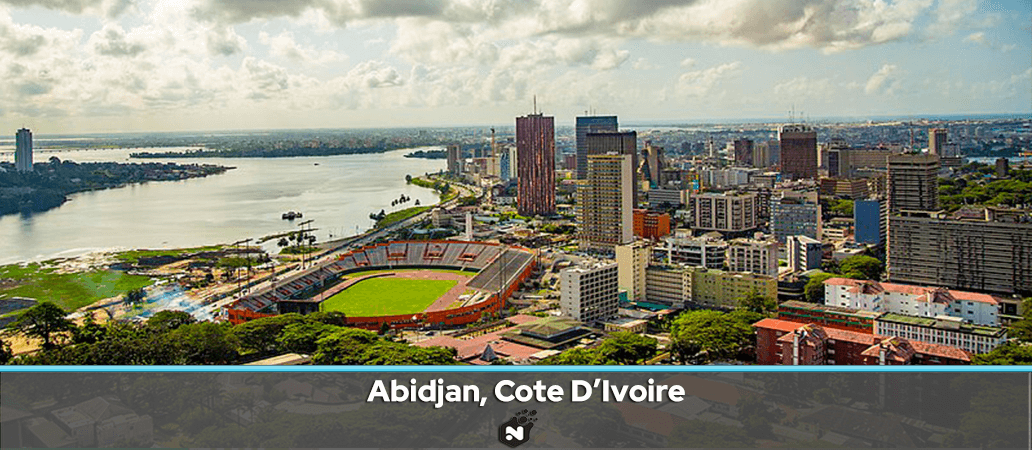The 20 Most Developed African Countries by GDP Per Capita
Economic development is a key indicator of a country’s prosperity and standard of living. While Africa is often portrayed as a continent facing numerous challenges, there are several nations that have made significant strides in economic growth and development. GDP per capita, which measures the average income per person, is a commonly used metric to assess the level of economic development in a country. Here are the 20 most developed African countries by GDP per capita:
1. Seychelles
Seychelles tops the list as the most developed African country by GDP per capita. Its economy is driven by tourism, fisheries, and offshore financial services, contributing to its high standard of living.
2. Mauritius
Mauritius boasts a diversified economy with strong sectors in tourism, manufacturing, and financial services. Its strategic location and business-friendly environment have propelled it to become one of Africa’s most developed nations.
3. Equatorial Guinea
Rich in oil and gas reserves, Equatorial Guinea has experienced rapid economic growth in recent years. However, disparities in wealth distribution remain a challenge despite its high GDP per capita.
4. Gabon
Gabon’s economy is heavily dependent on oil exports, which have fueled its economic development. The government has invested in infrastructure and social programs to improve living standards for its citizens.
5. Botswana
Botswana’s economy is driven by diamond mining, tourism, and agriculture. Its prudent management of natural resources and stable political environment have contributed to sustained economic growth and development.
6. Algeria
Algeria possesses abundant natural resources, including oil and gas, which form the backbone of its economy. Despite facing challenges such as high unemployment rates, Algeria maintains a relatively high GDP per capita compared to other African nations.
7. South Africa
As the most industrialized economy in Africa, South Africa has a diverse economic base encompassing mining, manufacturing, and services. However, persistent inequality and unemployment pose significant challenges to its development.
8. Tunisia
Tunisia has a well-developed manufacturing sector, particularly in textiles and automotive industries. The country’s stability and skilled workforce have attracted foreign investment, contributing to its economic growth.
9. Libya
Although recent political instability has hampered Libya’s economy, it remains one of the wealthiest nations in Africa due to its vast oil reserves. Reconstruction efforts following the civil war present opportunities for economic revitalization.
10. Namibia
Namibia’s economy relies on mining, agriculture, and tourism. With prudent fiscal policies and sound governance, Namibia has achieved steady economic growth and maintained a relatively high GDP per capita.
11. Egypt
As one of the most populous countries in Africa, Egypt has a diversified economy with strong sectors in tourism, manufacturing, and agriculture. Economic reforms aimed at liberalizing markets have contributed to its development.
12. Morocco
Morocco’s economy is characterized by its openness to foreign investment and vibrant tourism industry. The government’s focus on infrastructure development and economic diversification has propelled its growth.
13. Angola
Despite its reliance on oil exports, Angola has made efforts to diversify its economy through investments in agriculture and infrastructure. Addressing corruption and improving governance are crucial for sustained development.
14. Ghana
Ghana’s economy is driven by agriculture, mining, and services. Political stability and democratic governance have attracted foreign investment, fostering economic development and poverty reduction.
15. Nigeria
As Africa’s largest economy, Nigeria boasts abundant natural resources, including oil and gas. However, challenges such as corruption, insecurity, and inadequate infrastructure hinder its full economic potential.
16. Rwanda
Rwanda has experienced remarkable economic growth since the 1994 genocide, driven by investments in infrastructure, technology, and human capital. Its business-friendly environment and commitment to innovation have attracted foreign investors.
17. Kenya
Kenya’s economy is diverse, with strong sectors in agriculture, manufacturing, and services. Infrastructure development and investment in technology have positioned Kenya as a regional economic hub.
18. Côte d’Ivoire
Côte d’Ivoire’s economy is driven by agriculture, particularly cocoa production. Political stability and infrastructure investments have spurred economic growth and attracted foreign investment.
19. Senegal
Senegal has made strides in economic development through investments in infrastructure, agriculture, and renewable energy. Its stable political environment and strategic location make it an attractive destination for investors.
20. Tunisia
Tunisia has a well-developed manufacturing sector, particularly in textiles and automotive industries. The country’s stability and skilled workforce have attracted foreign investment, contributing to its economic growth.
These 20 African countries stand out for their economic development and relatively high GDP per capita. While each nation faces its own unique challenges, their progress serves as a testament to the continent’s potential for growth and prosperity. By leveraging their strengths and addressing key constraints, these countries can continue on their path towards sustainable development and improved living standards for their citizens
